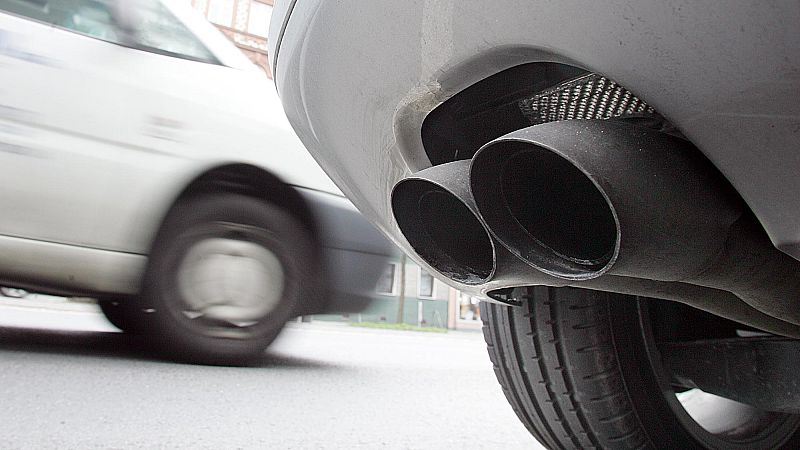France and Spain back 2035 diesel and petrol car ban, letter reveals

As the European Commission has touted the upcoming revision of the law banning new petrol and diesel cars by 2035, France and Spain urged EU leaders to “stay on track” saying that zero-emissions vehicles are “indispensable”, according to an official letter seen by Euronews.
Paris and Madrid argued that if the ban on zero-emission cars is reversed, the bloc will not succeed in achieving carbon neutrality by 2050, a pledge that is now binding under the EU’s climate law and will likely be discussed by EU leaders during the European Council in Brussels on Thursday.
They also say that it’s “not acceptable” for plug-in hybrids to be favoured after 2035, a demand that has been contested by many member states, namely Germany, Italy and Slovakia, which claim their industries are being severely affected by the mandatory shift to electrify vehicles.
Germany, a long-time automotive powerhouse delivering BMW, Mercedes-Benz and VW, has been vocal about the decline of its car industry, lobbying strongly against the ban on new diesel and petrol cars by 2035.
Italian Prime Minister Georgia Meloni dubbed the law "madness ideology", objecting to it since its onset. Her Slovakian counterpart Robert Fico has echoed similar comments, saying "green utopias" are threatening the country's automotive industry.
In the joint appeal, France and Spain recall the amount of finance already mobilised by the industry to be on track with the binding goals, stressing the “unfair international competition” and "increased pressure" to outsource production as China’s trade restrictions on rare earth metals came as a key deterrent to European manufacturers.
“This founding choice, which has guided several tens of billions of euros of industrial investment in Europe since 2023, must not be called into question,” read the joint letter, which insists the future of the European automotive industry will be electric.
Keep 'zero emissions' but enable incentives
However, France and Spain recognise the hardship currently faced by the European automotive industry and suggest the upcoming revision of the law ought to tackle the root problem and guarantee incentives for European manufacturers to invest in the electrification of their industrial production based in Europe.
The two capitals call for flexibility to help achieve the 2030 and 2035 targets, noting that these targets should be strictly tied to each car manufacturer's production efforts in Europe.
Under the current law adopted in 2023, at least 50% to 80% of new vehicle sales should be zero-emission — battery-electric or hydrogen fuel cell — in the run-up to 100% by 2035.
“The transition to electricity must not lead to the relocation of jobs to and increased dependence on third countries. On the contrary, the revision of the CO2 regulation is the opportunity to introduce a flexibility to support manufacturers that produce electric vehicles and source their components in Europe,” the letter said.
While yet to be officially announced, European Commission President Ursula von der Leyen told governments in a letter seen by Euronews and dated 20 October that she had "decided to accelerate the review of the regulation on CO2 emission standards for cars and vans."
This is one of the many files the EU executive has been "simplifying" to balance the EU’s climate pledges with competitiveness.
“We remain committed to the principle of technology neutrality and cost efficiency (…) we are also assessing the role of zero and low-carbon fuels in the transition to zero emission road transport beyond 2030, such as e-fuels (…) and advanced biofuels,” von der Leyen said in her letter.
The EU executive said the existing law banning the sale of traditional cars by 2035 will be announced for review by the end of the year.
Today

